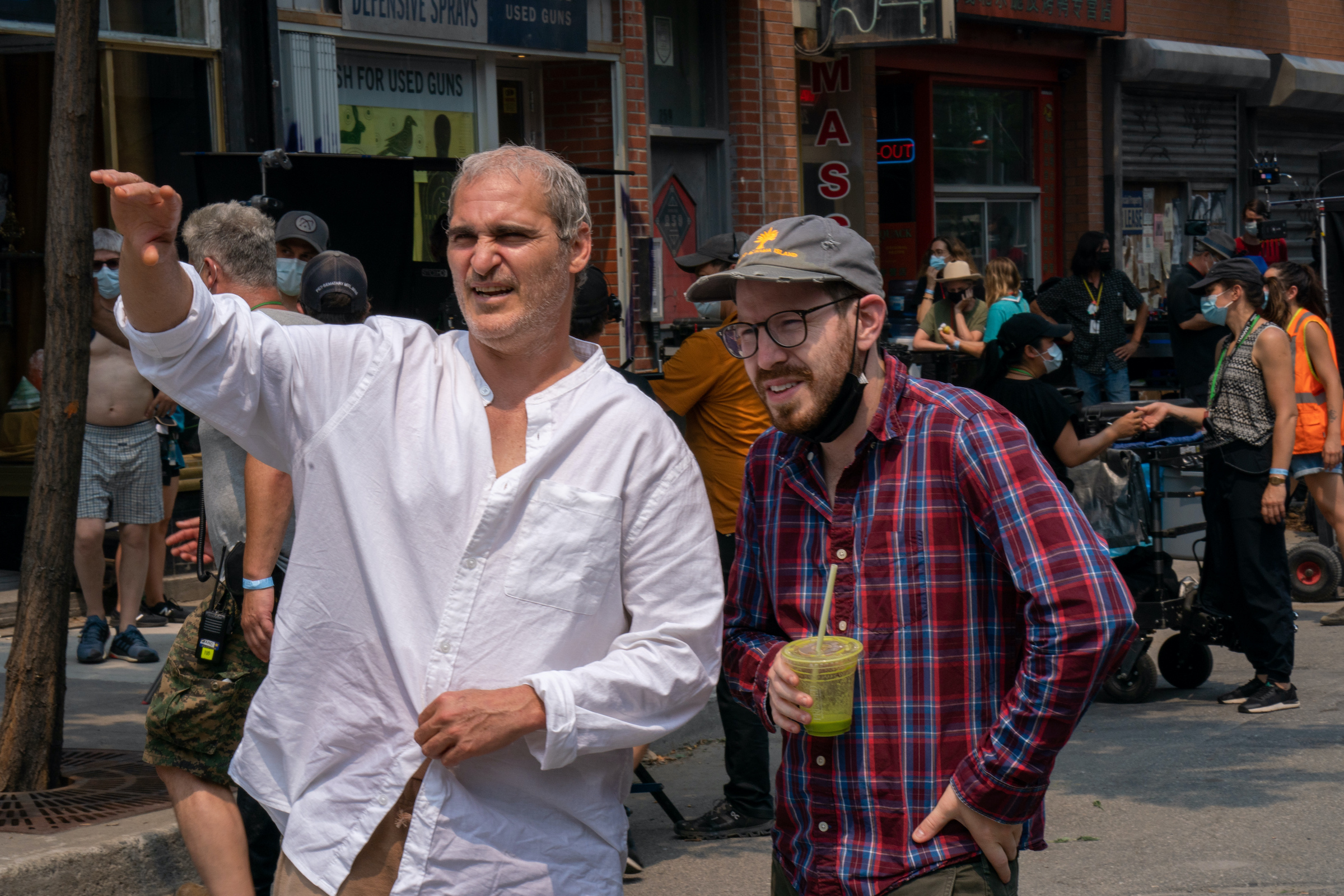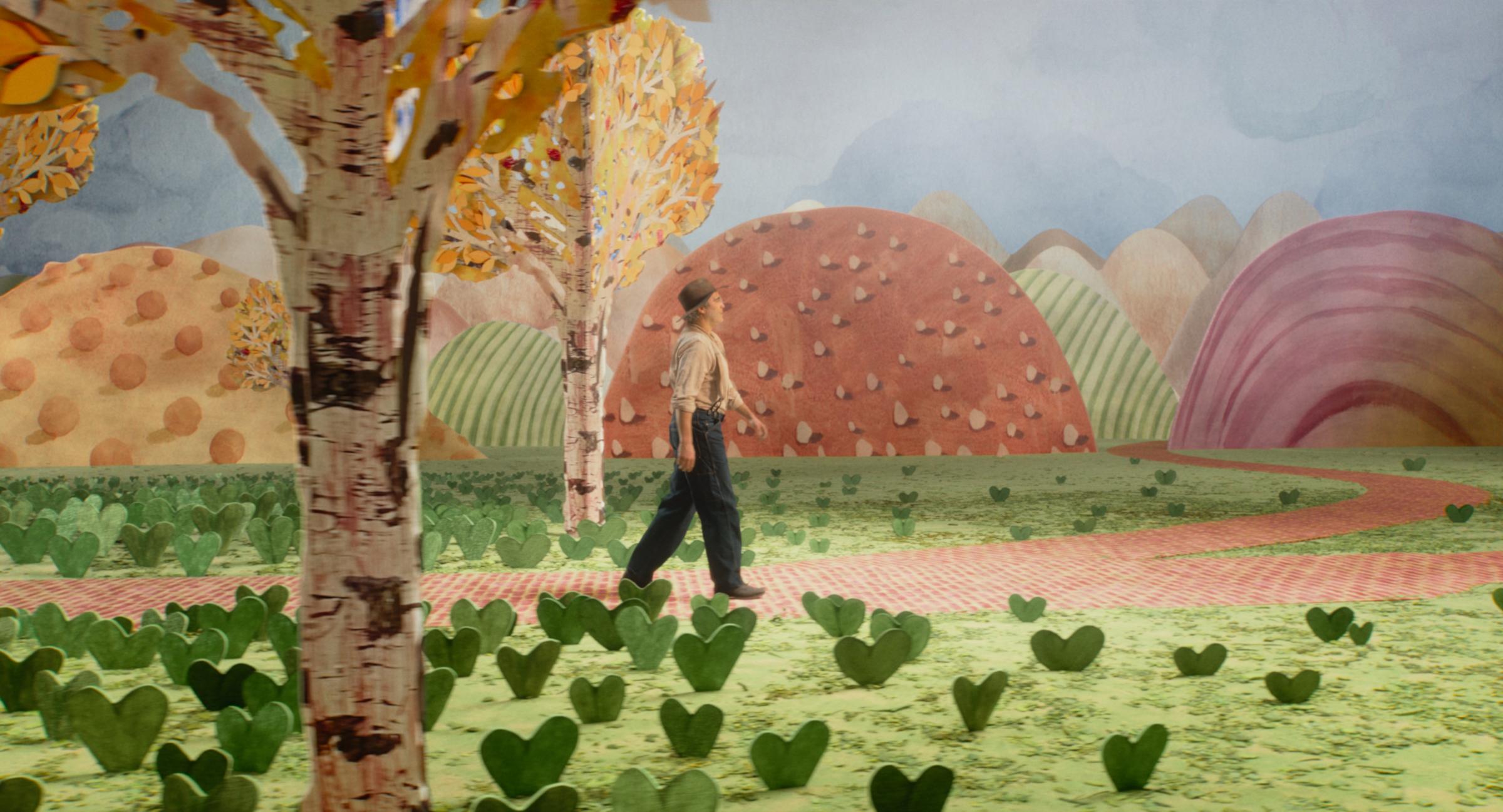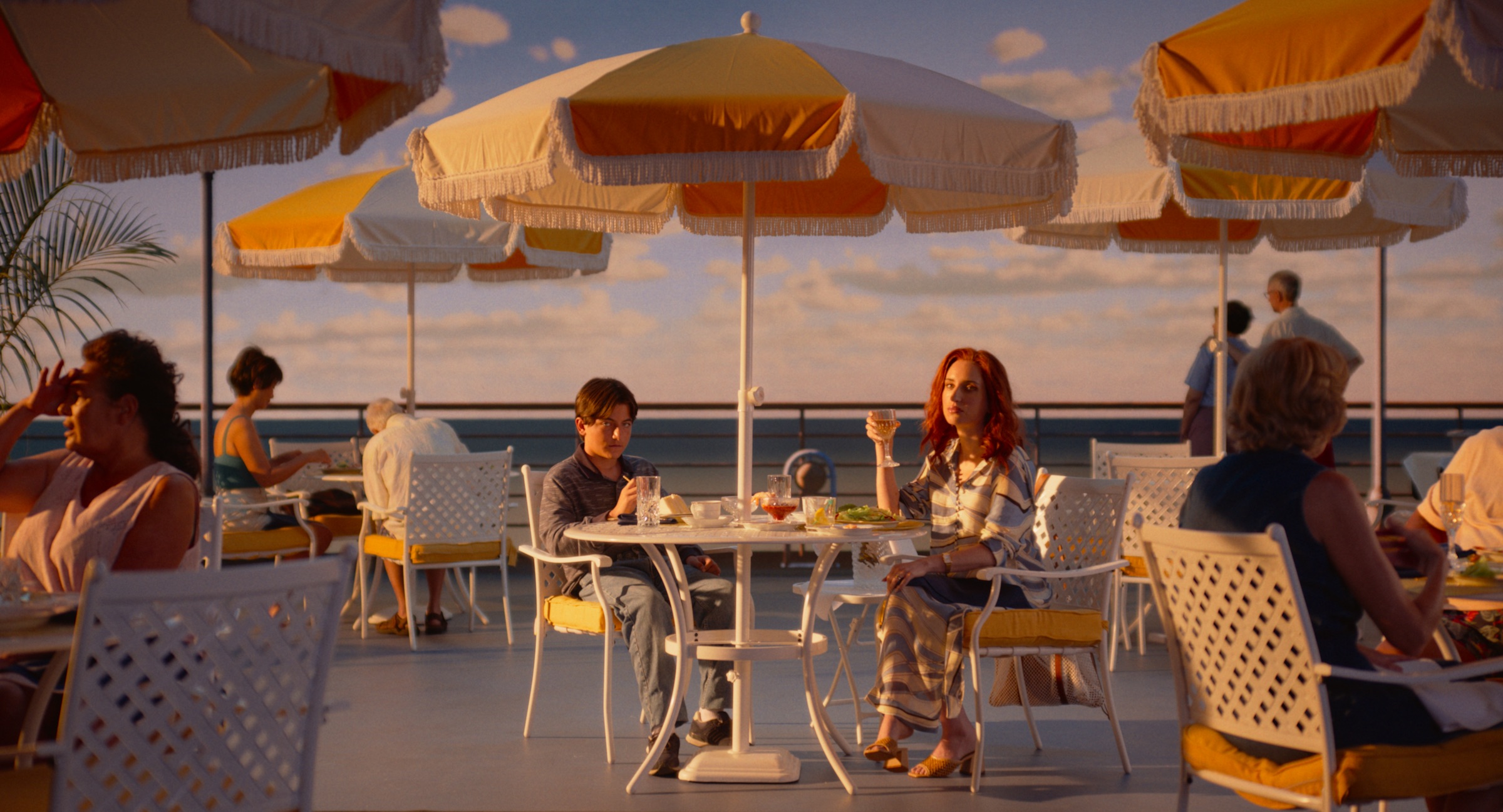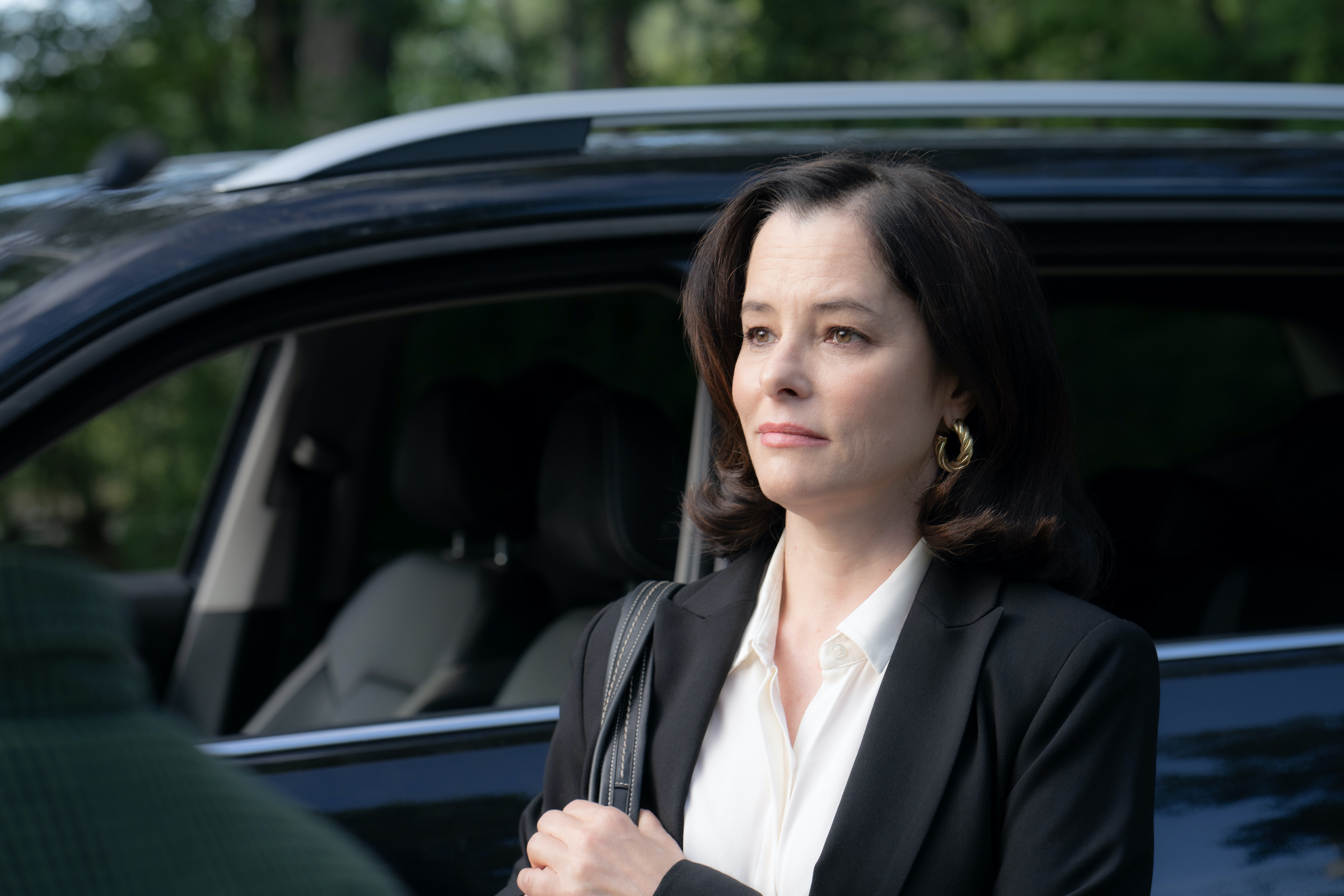Beau Is Afraid is now available to rent at home. This story was originally published in April, and contains major spoilers for Beau Is Afraid.
If the online discourse surrounding Beau Is Afraid is any indication, writer-director Ari Aster’s new movie is shaping up to be his most divisive offering yet. Tweets about the film, in theaters nationwide April 21, run the gamut from high praise for Aster’s “magnum opus” to scathing takedowns of the “career killer.”
“I wanted to make a movie that was like a video game but where your character can’t do anything and none of the buttons work,” Aster, who delivered smash horror hits with his first two features, Hereditary and Midsommar, tells TIME.
A three-hour-long surrealist black comedy, Beau Is Afraid follows the titular Beau (Joaquin Phoenix), a deeply paranoid and anxiety-ridden middle-aged man, on an epic odyssey to get home to his overbearing mother, Mona (Patti LuPone, played in flashbacks by Zoe Lister-Jones). The movie takes viewers on a bizarre Homeric journey through a wide-range of settings, from Beau’s run-down apartment in a lawless city to the wealthy suburban home of a self-destructing family to a seemingly magical forest theater commune, as Beau grapples with a lifetime of debilitating psychological hangups.
“Guilt, shame, paranoia, Freudian mom issues—you name it, Aster slaps it up there on the screen, with Phoenix as our jittery naif, stumbling from one traumatic episode to the next,” TIME film critic Stephanie Zacharek wrote. “It’s the most magnificent act of oversharing you’ll see all year, a banquet of all the TMI you can eat, just for the price of a ticket.”
Even Phoenix himself wasn’t sure what to make of Beau after first reading the script. “When you start out, everything feels foreign and just doesn’t make sense,” he says. “I didn’t know where to begin.”
Love Beau or hate it, chances are that when you walk out of the theater you’ll be asking yourself, what exactly is this movie trying to say? According to Aster, it couldn’t be more straightforward. “I worry it’s too obvious. Like, it’s right there. There’s nothing to talk about,” he says, without actually letting on to what the answer is. “You bury a lot of details, but they’re all details you’re burying in service of filling out the thing that it obviously is.”
But for those hoping to delve a little deeper, let’s break down some of the imagery, themes, and symbolism that feature prominently in the film.
Read more: Beau Is Afraid Is a Bleak Black Comedy That’s More Tedious Than Hilarious
A world of pure chaos

Following an opening sequence depicting Beau’s birth from his point of view in utero, we’re introduced to adult Beau during a visit to his psychiatrist (Stephen McKinley Henderson) to discuss an impending trip home to visit his mother. When Beau emerges from this appointment, it’s into a hellish cityscape fraught with senseless violence and jarring acts of inhumanity.
“It’s unpleasant in all the ways that our world is unpleasant,” Aster says. “But the dial is turned up a notch.”
Nearly every surface we see as Beau makes his way home to his sparse, lonely apartment is covered in graffiti or lewd advertisements—details that Aster says he continued to add throughout the filming process. Specifically referencing a drawing of “a penis in a tuxedo vomiting,” Aster says that the only rule for these gimmicks was that they had to reflect his sense of humor.
“I learned this term ‘chicken fat,’ which is the idea of jamming the background with as many gags as possible,” he says. “And part of the fun for me was how many details we could cram into the frame. It was a big distraction in pre-production just coming up with really stupid names for things, titles for fake movies and names for fake products and fake band names…You see names of bands like ‘Anal Puke,’ ‘Death By Anal,’ ‘Murder By F-ck,’ ‘Butt Finger.'”
“He needs to just get some therapy,” Phoenix interjects.
As for the anarchic nature of the city—named Corrina, according to Aster, in reference to the 1994 Ray Liotta movie Corrina, Corrina—what we see is likely more a product of Beau’s anxieties than a true interpretation of reality.
“You’re in the shoes of this person, moving through him—but it’s less about tracking his course than experiencing his memories, his fantasies, his horrors,” Aster said in commentary included in the film’s production notes. “The movie is Beau’s experience of life.”
One of Phoenix’s inspirations for the way Beau reacts to the outside world was a YouTube video he watched of a police officer having a panic attack while responding to a call. “He was emitting these sounds that were so animalistic. It was one of the craziest things I’ve ever seen,” Phoenix says. “I really wanted to find something for a certain part in the film and I was like, I can’t just scream. I need to find something unique that fully captures how twisted this moment is and how it affects this person.”
An assortment of literary influences

Aster has previously described Beau Is Afraid as a “Jewish Lord of the Rings,” a comment he clarifies with the explanation, “The tongue was in the cheek, obviously, but this movie is very Jewish and it’s three hours long.”
But other literary influences also abound, ranging from Franz Kafka to Jorge Luis Borges to Virgil to Laurence Sterne to Miguel de Cervantes to Tennessee Williams.
“Ari Aster shows us a Kafkaesque nightmare not unlike the one we are living through today,” Parker Posey, who plays the adult version of Beau’s lifelong love interest Elaine, said in the production notes. “He captures intense feelings about what it means to walk around our cities and live inside our homes, the things that haunt us about our parents, the mayhem of culture and capitalism.”
The Greeks come into play as well, with odes to Oedipus Rex, Medea, and, of course, The Odyssey, assuming a significant role in Beau’s hero’s journey. “Greek tragedies always really made me laugh because the gods in those plays are so petty and so ridiculous,” Aster says. “They’re always punishing people for not honoring them in the right way. And I thought, ‘Oh, that’s very Jewish. That’s like the most Jewish thing.'”
The end all be all of mommy issues

After missing his original flight home, Beau learns from a UPS worker (voiced by Bill Hader) that his mother has apparently been decapitated and killed by a falling chandelier. It’s this news that sets Beau on course for the series of unfortunate events he experiences while trying to make his way to her funeral—a rite that Mona’s lawyer informs him cannot take place until Beau has arrived, per her own decree.
By the end of the film, Beau discovers that Mona is not really dead and instead elaborately faked her own death simply to see if he would react in a way that she deemed appropriate. “Their relationship is complicated because Mona gives so much love—the uncontrollable kind that can move mountains but also create anger and resentment between giver and receiver,” Armen Nahapetian, who plays a 12-year-old version of Beau in a flashback sequence, said in the production notes.
Given the ambiguous nature of the movie, viewers are still seemingly left to decide if Mona’s death and the woes that plagued Beau in its wake were all orchestrated by Mona as a punishment for her disloyal son, or if everything was in Beau’s head all along.
For Phoenix’s part, he says he approached playing Beau from a place of uncertainty about the truth of the character. “Everything has to be a reaction to the environment,” he says. “It’s alchemy. It’s how [Ari and I] talk to each other, the set, the other actors, the wardrobe, the look, the hair—all of that has to come together. Those things affect me so much that to make any decision to try to feel certain about who the character is would be a mistake. Because then I would be trying to bend the world to what I was feeling when it should be the other way around.”
Guilt trips galore

One of the most apparent themes in Beau Is Afraid is guilt. It’s the driving force behind nearly everything Beau does and, therefore, at least partly to blame for the litany of mishaps that befall him throughout the movie.
Beau’s guilt derives almost entirely from his relationship with Mona, who convinced him from an early age that if he ever ejaculated, he would die. This belief was based on her claim that his father died the night that Beau was conceived—just as Beau’s grandfather and great-grandfather did before him.
Early in the film, Beau takes a call from his mother that establishes the dysfunctional power dynamic between them. “That one phone call is enough to convey that Mona has weaponized Beau’s guilt into a worried sort of impotence,” Indie Wire‘s David Ehrlich wrote. “She’s convinced her son that taking any control over his life would be a betrayal of her undivided love for him, and now she’s upset that her middle-aged perma-child is too scared of the world to find his way through it on his own.”
The film’s dreamlike third act, in which Beau finds himself as star and subject of a mysterious theater troupe’s play, allows him a brief glimpse at what his life could be if he broke free from his mother’s stranglehold. “He’s put under hypnosis, walks into the play, and imagines what could happen if he were a more active agent in his own life,” Aster said in the production notes.
But, in the end, it’s all for naught. The movie’s final scene, in which Beau stands trial by kangaroo court, reveals that, at least in his own mind, Beau has ultimately been judged guilty of everything he has feared he is guilty of all along.
More Must-Reads from TIME
- Caitlin Clark Is TIME's 2024 Athlete of the Year
- Where Trump 2.0 Will Differ From 1.0
- Is Intermittent Fasting Good or Bad for You?
- The 100 Must-Read Books of 2024
- Column: If Optimism Feels Ridiculous Now, Try Hope
- The Future of Climate Action Is Trade Policy
- FX’s Say Nothing Is the Must-Watch Political Thriller of 2024
- Merle Bombardieri Is Helping People Make the Baby Decision
Write to Megan McCluskey at megan.mccluskey@time.com